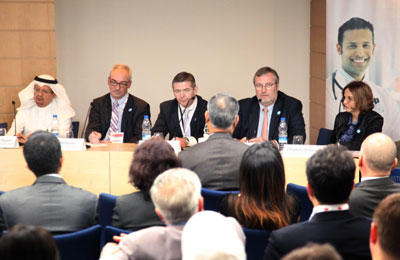
New devices 'to drive healthcare innovation'
Dubai, February 20, 2013
The medical device industry will continue to drive healthcare innovation and will account for an increasing proportion of overall healthcare spending in the Mena region, which is set to double to 6 per cent of GDP within the next five years, a report said.
The regional medical devices market – currently valued at around $1 billion per annum – will not only deliver clinical benefits but also assist governments in delivering more cost effective healthcare solutions to more patients, said a statement from Mecomed, the medical devices and diagnostics trade association for the Middle East.
The first industry seminar hosted recently by Mecomed, which represents 18 international manufacturers and around 80 per cent of the region’s market, touched on key issues related to the industry.
The seminar, held during Arab health 2013, brought together a top panel of international and regional speakers, representing regulators and manufacturers – including the CEO of Eucomed (the European medical devices trade association), to discuss a range of issues from regulatory affairs, to business transparency, ethics and compliance.
Under the overall theme of changes, challenges and trends for the MedTech industry, the seminar explored the potential harmonisation of the GCC market, the Mecomed code of ethics for member manufacturers and local distributors, payment systems including reimbursement models, and the need for the industry to create its own distinctive identity with an appropriate regulatory framework, distinctive to the pharmaceuticals sector with which it is often bundled, the statement said.
With hundreds of new devices coming to market every year and a lifecycle of two to three years, the medical devices industry has a very different modality to the pharmaceutical industry, and is proving to be a significant driver in delivering clinical benefits and broader socio-economic efficiencies and overall value. Examples cited at the seminar included the benefits of minimally invasive surgery, and cardiology interventions such as stenting as an option to open heart surgery, with the patient and healthcare system benefitting from faster, less invasive and lower risk treatment, quicker recovery and shorter hospital stay, and a productive life resumed. – TradeArabia News Service







